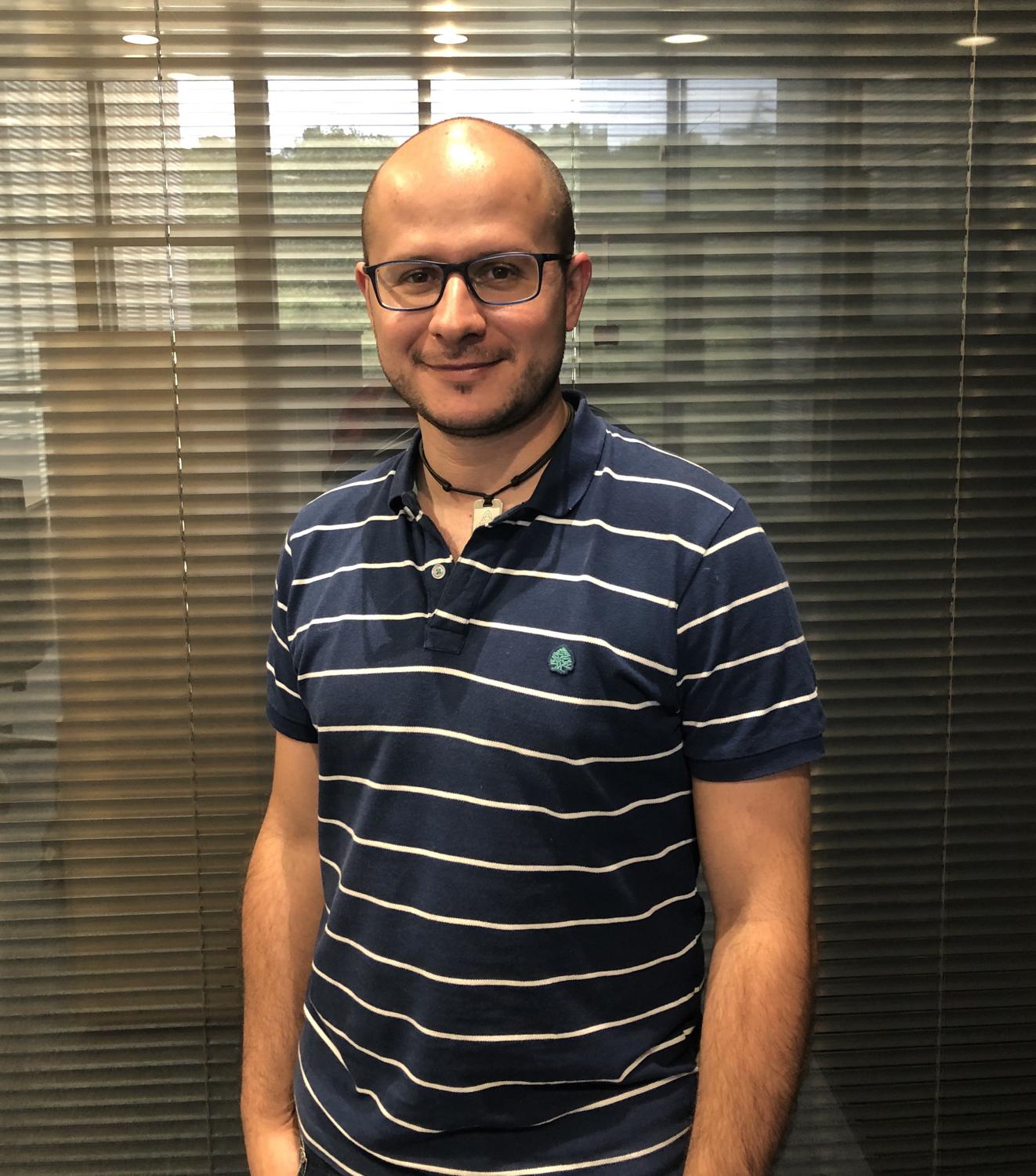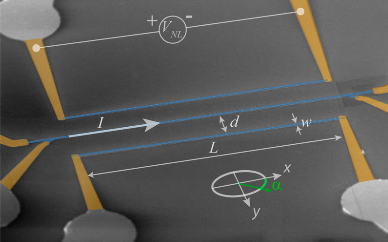PhD thesis by Juan Manuel Gomez: Spin-transport in magnetic insulator/heavy metal heterostructures
Juan Manuel Gomez, Pre-doctoral Researcher at the Nanodevices group at nanoGUNE, received his PhD at the University of the Basque Country (UPV/EHU) after the defense of his thesis project at the beginning of 2020. His research work, entitled “Spin-transport in magnetic insulator/heavy metal heterostructures" has been developed under the supervision of Felix Casanova, Ikerbasque Research Professor and group co-leader at the nanoGUNE's Nanodevices group.
An international committee including leading researchers in the field was selected to assess the research project:
- Dr. Hans Huebl (Technische Universitat Munchen).
- Dr. F. Sebastian Bergeret (University of the Basque Country UPV/EHU).
- Dra. Arantxa Fraile Rodríguez (University of Barcelona).

The defense consisted of a presentation by the candidate on the main aspects of the Ph.D. thesis project followed by an extended discussion based upon the questions that each one of the members of the committee raised in relation to the research work that has been carried out by Juan Manuel Gomez during his PhD studies.
After the defense, we asked Dr. Juan Manuel Gomez to explain us a bit more about his project:
Which was the subject of your thesis?
My thesis belongs to the field of spintronics, which is a promising field to overcome the problems of the current electronics, by exploiting not only the charge but also the other degree of freedom of an electron, the spin. In particular, my thesis is focused on different spin-dependent phenomena in magnetic insulators / heavy metal interfaces and how they affect the creation and transport of spin information through magnetic insulators.
Why did you choose this subject?
I discovered spintronics in a course during my master’s degree. I felt really attracted to this field related to developing new technology based on new physical effects. Then, I decided that, if I had the choice, I wanted to do my PhD in spintronics. I knew that in nanoGUNE there was a good group working on spintronics and there was an open position at that time. I am glad that I was chosen for the PhD position.
Which metodology/techniques did you use?
During my Ph.D. I had access to different deposition and characterization techniques. We use bare magnetic insulator substrates on which we perform metal deposition, lithography processes, and all the magnetotransport measurements.
Which have been the main conclusions?
My thesis had two different parts, in the first one, we probed the spin Hall magnetoresistance (the change of the resistance under presence of an external magnetic field) as a powerful technique to characterize the magnetic and conductance properties at the interface. This technique can be useful to optimize the conductance at the interface that is important for writing or reading processes in magnetic memories. The second part of my thesis is based on the transport of spin information via magnons (or spin waves) through a magnetic insulator which allows for the spin information to be transported and detected over long distances.

What could be the contribution of your research for present or future nanotechnologies?
Using magnons allows for transport of spin information over long distances in comparison to other spin transport mechanisms. Secondly, the fact of using magnetic insulators prevents the emergence of spurious effects related to the charge flow which normally arise in conductors and unnecessary energy losses. Both of these points make this kind of materials very attractive for future spintronic applications.
How do you feel now that you have finished the thesis? Which are your plans for the future?
My first feelings were relief and happy. I am relieved after finishing my PhD because the last months were a bit tough, but I also feel really happy because in the end, all the effort was worth it, and, in my opinion, we have finished a beautiful thesis with many interesting results. About my future, I have a contract with nanoGUNE for one more year, and after that, I would like to continue in academia so I will probably go abroad for a postdoc.
